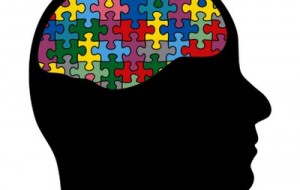Two brilliant pro neurodiversity academic essays on autism
Both these essays are by Kristin Bumiller, Professor of Political Science and Women's and Gender Studies at Amherst College, Massachusetts and are published in Signs: Journal of Women in Culture and Society.
The first is Quirky Citizens: Autism, Gender and Reimagining Disability and is published in the Summer 2008 issue of Signs: http://www.journals.uchicago.edu/doi/fu ... 086/528848 .
The second is The Geneticization of Autism: From New Reproductive Technologies to the Conception of Genetic Normalcy and is published in the Summer 2009 issue of Signs: http://www.journals.uchicago.edu/doi/fu ... 086/597130 .
I got into the articles fine, but my school has free access to about a million different journals. YMMV.
They're interesting, of course, but they're mostly sociological/political/feminist, rather than psychological, medical, neurological--not that there's anything wrong with sociology; they're just not the people who are really going to help how autistic people are being treated right now. I would much more like to see articles like this published where social workers, therapists, child psychiatrists, and special education teachers would see them.
Who's Kristin Bumiller? Anybody know anything about her?
_________________
Reports from a Resident Alien:
http://chaoticidealism.livejournal.com
Autism Memorial:
http://autism-memorial.livejournal.com
Callista asked:
Here is her personal webpage: https://www.amherst.edu/users/B/kbumiller . She specialises in the areas of feminism and violence and human rights.
It is great that there are intelligent and perceptive essays on autism in a non-medical, non-scientific journal.
Interesting scientific publication on Autism and neurodiversity :
Autism as a Natural Human Variation: Reflections on the Claims of the Neurodiversity Movement
Some autism inside the narrow conception of neurodiversity can be seen as a natural variation
on par with for example homosexuality. (Lower-functioning autism is also part of natural
variation but may rightly be viewed as a disability.) Just as homosexuals in a homo-phobic
society, the conditions in which autists have to live in an autism-incompatible or even autism-
phobic society are unreasonable. Therefore, it is not fair to place the locus of the problem
solely on the autistic individual. What also is needed is a discourse about the detrimental
effects of an autism-incompatible and autism-phobic society on the well-being of autists.
Therefore, in the case of high-functioning autists, society should not stigmatize these persons
as being disabled, or as having a disorder or use some other deficit-based language to refer to
these people. It is much less morally problematic to refer to the particular vulnerability of
these autists. Also, group-specific rights for autists are needed to ensure that the autistic
culture is treated with genuine equality.
It is our conclusion that it is wrong to subsume all persons with Asperger’s
Syndrome and high-functioning autists into the wide diagnostic category of Autistic Disorder
(Autism Spectrum Disorder), as the work group of the American Psychiatric Association for
the Diagnostic and Statistical Manual of Mental Disorders-V (DSM-V) proposes. Some of
these persons are not benefited with such a psychiatric defect-based diagnosis. In fact, some
of them are being harmed by it, because of the disrespect the diagnosis displays for their
natural way of being, which is of course contradictory to the Hippocratic principle of ‘primum
non nocere’. However, we think that it is still reasonable to include other categories of autism
in the psychiatric diagnostics. The narrow conception of the neurodiversity claim should be
accepted but the broader claim should not.
Interesting scientific publication on Autism and neurodiversity :
The Cerebral Subject and the Challenge of Neurodiversity
The neurodiversity movement has so far been dominated by autistic people who believe their
condition is not a disease to be treated and, if possible, cured, but rather a human specificity (like
sex or race) that must be equally respected. Autistic self-advocates largely oppose groups of parents
of autistic children and professionals searching for a cure for autism. This article discusses the positions
of the pro-cure and anti-cure groups. It also addresses the emergence of autistic cultures and
various issues concerning autistic identities. It shows how identity issues are frequently linked to
a ‘neurological self-awareness’ and a rejection of psychological interpretations. It argues that
the preference for cerebral explanations cannot be reduced to an aversion to psychoanalysis
or psychological culture. Instead, such preference must be understood within the context of the diffusion
of neuroscientific claims beyond the laboratory and their penetration in different domains of
life in contemporary biomedicalized societies. Within this framework, neuroscientific theories, practices,
technologies and therapies are influencing the ways we think about ourselves and relate to
others, favoring forms of neurological or cerebral subjectivation. The article shows how neuroscientific
claims are taken up in the formation of identities, as well as social and community networks.
| Similar Topics | |
|---|---|
| Neurodiversity event moved to meet demand |
03 Sep 2024, 11:31 am |
| PTSD or autism |
03 Nov 2024, 5:13 pm |
| Teenager with Autism and OCD |
13 Nov 2024, 6:26 am |
| Autism and Parkinson's Disease |
14 Sep 2024, 3:20 pm |








